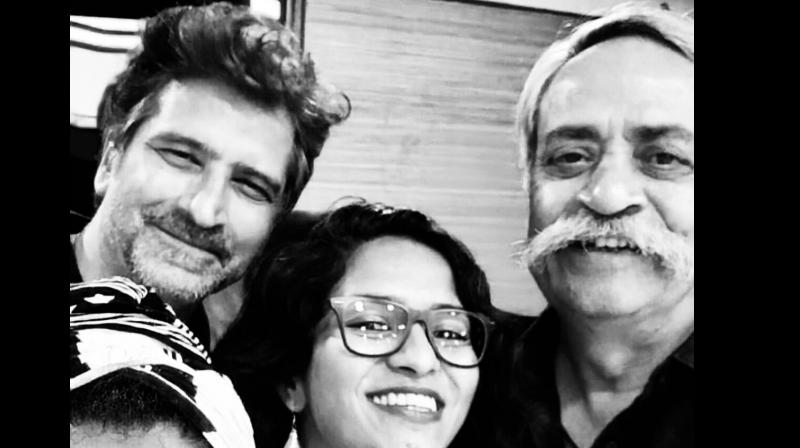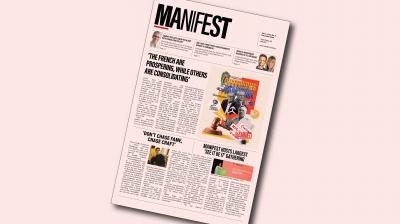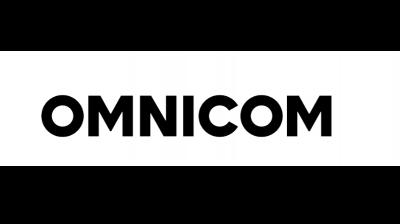I first got to know the man up-close not in person, but through his book, ‘Pandemonium’, on my first day at Ogilvy. A colleague, in a welcoming gesture, handed me his treasured signed copy. Around me, others chimed in, adding to the myth, the magic, and the many legends of Piyush Pandey. This was June 2018, the same year Piyush and Prasoon, his brother, were awarded the Lion of St. Mark at Cannes.
Everyone knew Piyush, of course. But meeting him and working with him... that is a matter of chance, and perhaps fate.
The very next day of joining, as luck would have it, I was put on Fevikwik. A simple five-rupee hack turned into a mega brand by the man himself through iconic lines like, 'Chutki mein chipkaye'. It was an honour to work on new campaigns and build strategy for a brand so deeply soaked in creative brilliance. I soon went on to work with an amazing team, define models, win awards, and eventually, win my (and the client Pidilite’s) first ever Effie Grand Prix on Fevikwik.
Piyush’s creative intelligence was always strategic in nature.
One could decode the logic in every line and the insight in every incident portrayed. His work made the strategist’s job harder, but also sharper. Almost like a case study waiting to be written, in a chutki.
I was then working on other brands too. But working on Fevicol, the gold standard of Indian advertising, was another kind of joy. Growing up, Fevicol ads were a delight to watch, a cultural shorthand for wit and wisdom, uniquely Indian. They took a moment of everyday humour and stretched it effortlessly into a metaphor for ‘strong bonds’, the brand’s functional promise. When I got to work on '60-Years of Fevicol', through the now-iconic ‘sofa campaign’, it felt like a fortune of coming full circle. How does one say ‘iconic’, ‘long-lasting’, and ‘strong bonds’; if not through Piyush’s genius of using the metaphor of a sofa passed down across generations like inherited wealth?
Fevistick and other Pidilite brands were soon thrown in the mix for me, alongside brands from Castrol, Unilever, and the occasional inputting on other brands across the board. I didn’t know it then, but the first ever brand ad Piyush wrote was on Sunlight Detergent from Unilever featuring Surpiya Pathak, and I was working on the brand throughout my tenure oblivious to this fact and little anecdote.
Working with a fantastic team and Piyush on new campaigns always felt like living inside a dream I didn’t even know I had. As a creative, you dream of Ogilvy as the Mecca of advertising. As a strategist, you navigate the compass of curiosity, trying to locate truth between art and intent. The norm sometimes counsels too logically to move in the other direction, but I am glad I didn’t and took sage advice from my then non-Ogilvy Boss, “If you ever move back to Bombay, go only to Ogilvy.”
I’m forever glad I did.
At Ogilvy, I re-learnt that strategy must be simple to be brilliant. It’s not about 500 slides; it’s about one clear thought that sticks. It’s also the only place in my 15+ years of a relatively shorter career where I found some of the nicest people across the board: sweet, humble, hilarious, and eager to listen. Creative agencies sometimes risk a ‘God complex’, where art eclipses empathy and one department sometimes see other colleagues as somewhat sapiens. Not here. Here there was a shared DNA of something honest that ran through the work and the people.
That honestly, I believe, came from Piyush.
It percolated in its simplicity through every campaign, every conversation, and every hallway laugh. The emotion at Ogilvy was seldom performative. It was never trying to be cool or loud or “Gen-Z relevant” with a frivolous dubstep dance. Every piece of work felt right, and induced pride, because it was. It came from truth, not trends.
I seldom take photographs with legends as it makes me awkward. Yet I feel a quiet loss in not having more with Piyush. The few that exist are probably tucked away on an old phone or a backup somewhere like the bittersweet joy of love, loss, and longing.
Perhaps that’s how it was meant to be. His real portraits aren’t in our cameras although he looks effortlessly charming and iconic in each one. They live in his work, his honesty, his candour, his simplicity, his magic, and a shared DNA transcending time, space, and culture.
A bit like the timeless sofa in the iconic '60 Years of Fevicol' ad.
Truly, the 70-years of Piyush sir and his timeless legacy will pass on in its sheer brilliance inspiring generations to come; lending them an inheritance that put India on the global advertising map through strong bonds with everything and everyone he touched, and his simple truths.
The author was VP – strategy and planning, Ogilvy till 2022. She consults independently now.

.jpg)









